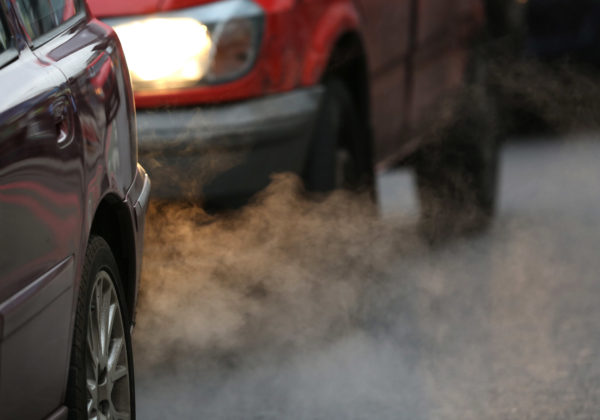The government just abandoned plans for a diesel scrappage scheme
A national scheme to tackle toxic air would have helped drivers to trade in their old polluting vehicles for cleaner versions

The government just quietly abandoned the idea of a national scheme to help drivers across the country scrap their old polluting vehicles.
A national scrappage scheme would have given compensation to drivers so they could trade in their dirtier old model for a vehicle that emits less toxic pollution.
The idea of a scheme was trailed to media last year as a key component of the government’s national air quality strategy, with a story about the scheme published on the front-page of the Telegraph days before the draft plans were released.
When Michael Gove later became environment secretary, he did not commit to it in the plan but was expected to stick with a watered down version, following consultation.
The government states that it has not changed its policy and that local authorities can still bid for money if they want to set up their own schemes.
Buried
The decision to ditch the idea of a national scheme was buried in the tail-end of a document published on Friday that details how a £220m fund to help local authorities tackle toxic air can be spent.
The environment department said respondents to a consultation question on scrappage scheme proposals had warned it could be poor value for money, difficult to deliver, open to abuse and disruptive of the “existing car market”.
The consultation response document continued: “in response to these concerns we are not proposing to take forward a national scrappage scheme at this time.”
In the document, the government makes clear that they have “not restricted the types of measures local authorities could bid for funding for from the Clean Air Fund”.
So councils will still be able to pitch for money from this fund to create their own local scrappage schemes if they meet government criteria. But there is no guarantee that any of the funding will be spent on scrappage schemes and any proposals will have to compete against an array of others projects from road layout changes and cycling infrastructure to public transport improvements and freight consolidation centres.
A spokesperson from the environment department told Unearthed: “It is wrong to claim that we have changed our position or ruled out scrappage. We have consistently said that any potential scrappage scheme would be targeted. Today’s announcement confirms this position, making it clear that councils with poor air quality can put forward plans for local scrappage schemes under the Clean Air Fund.”
The government later issued a public statement, which said: “We have always been clear that any potential scrappage scheme would need to be targeted towards those that need it most. The Clean Air Fund announced today specifically includes targeted scrappage schemes as one of the possible uses of the fund that local authorities may wish to bid for.”
Although the government had not formally committed to a specific national scheme, the media had widely reported that the idea was “the most radical measure” under consideration as part of the national air quality strategy.
In documents published in their draft plans last summer they had modelled a scheme for 15,000 vehicles and included a larger scheme on a shortlist of policy options under consideration.
“National health emergency”
The government’s national air quality plans have faced a slew of criticism in the past year from scientists, lawyers and politicians, for failing to properly address the “national health emergency” of air pollution.
The government’s latest plan largely hands responsibility to councils to create local plans to tackle the issue, with two pots of funding provided: £225m for the implementation of projects that cut emissions and £220m to alleviate the impact on local people and businesses.
Last month the plans were thrown out by the courts for a third time, with the judge giving exceptional permission to environmental lawyers at ClientEarth to keep bringing the case back if the plans do not improve.

